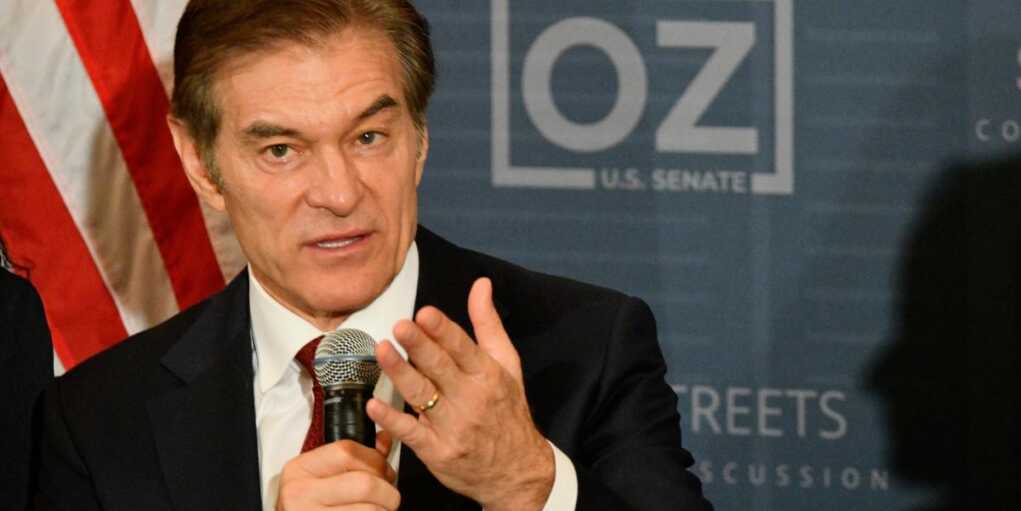Dr. Oz Teases Trump’s Next Healthcare Move

President Donald Trump has again hinted at replacing the Affordable Care Act with a Republican alternative. He did so during a recent interview, pointing to a plan that puts money and decisions closer to patients.
On Sunday, Dr. Mehmet Oz, who leads the Centers for Medicare & Medicaid Services, expanded on that vision. He spoke about more consumer choice, cheaper prescriptions, and new access for small businesses that struggle with premiums.
He also tied the plan to flexibility. He said the key is letting families choose doctors and programs that fit their needs. He pushed a simple idea: give people control and reward value.
Dr. Mehmet Oz said, “People will decide which doctors they want to keep. They’ll pay for the programs they think are most valuable to them,” he told Peter Doocy on “The Sunday Briefing.”
He said savings are already possible inside the current system if money is steered the right way. He believes cutting prices and redirecting funds can even return dollars to families.
Dr. Mehmet Oz said, “We can save enough money in the ACA as it’s currently structured if we adjust where the money’s invested and drive prices down… to actually give people some money back, and we want that.”
He then focused on employers. Many small businesses sit out of the market because costs are too high, but they could afford targeted coverage if the rules change and choices expand.
Dr. Mehmet Oz said the next important step involves “bring[ing] people off the sidelines,” noting that many small businesses are unable to afford expensive commercial insurance but could afford to purchase an ACA program.
He emphasized direct purchasing power. He wants individuals to have funds in hand to shop for what actually matches their health needs and budget, not what a one-size plan dictates.
Dr. Mehmet Oz said, “Empower them, put some of the money in their hands, let them buy the policy that suits their needs,” he continued, going on to mention the Trump administration’s recent announcements regarding Most Favored Nation drug pricing.
He linked affordability to drug reforms. He said pushing pharmaceutical firms to give Americans the same prices they charge overseas could change the math on costs across the system.
Dr. Mehmet Oz said this shift would lower expenses “dramatically.”
He also pointed to new agreements with major manufacturers behind popular GLP-1 medications. He explained how price drops for drugs like Zepbound and Wegovy could change outcomes for millions.
Dr. Mehmet Oz said, “We’re gonna be able to get Americans to lose about 125 million pounds over the next year by dropping the price of these weight loss drugs that are very effective,” Oz said.
He made the larger case that better health saves money on the back end. Fewer heart attacks, less kidney failure, and lower rates of dementia mean lower costs for everyone.
Dr. Mehmet Oz said, “They’re not a cure for obesity, but they help you get back to your fighting weight. The value to that of the U.S. economy, the health economy, is massive because you will actually pay for these drugs with just the savings from reducing heart attacks and kidney failure and dementia and all the things like hypertension and diabetes that cause those problems.”
The timing matters because subsidies tied to the current law are approaching a key date. Pressure in Washington will build as leaders weigh how to balance premiums, choices, and the federal budget.
Trump also outlined an idea to shift dollars from insurers to people. He favors accounts that individuals can use to purchase their own coverage, putting the shopper in charge of the plan.
Supporters say the mix is straightforward. Expand choice, expose prices, and leverage competition to cut costs. Help small businesses reenter the market with options they can actually afford.
The administration’s message echoes that theme. Give Americans the tools to choose doctors and plans, and use drug pricing reforms to lower the biggest line items. Health care works better when people have real options and clear prices.
In the weeks ahead, expect draft language, scorekeeping, and more negotiations. The promise is practical: more freedom to choose, more pressure on prices, and a path for small employers to cover their teams.

